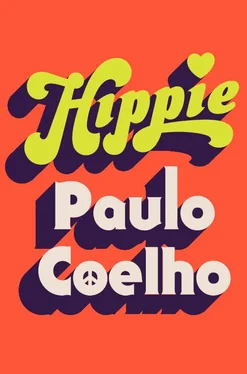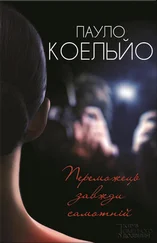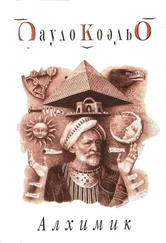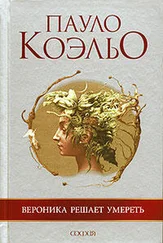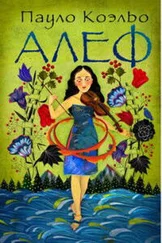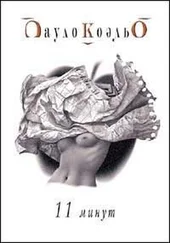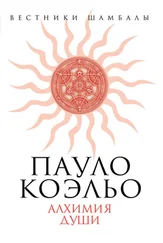O Mary!
conceived without sin,
pray for us who turn to you!
Amen.
He was told, “Your mother and your brothers are standing outside and they wish to see you.”
He said to them in reply, “My mother and my brothers are those who hear the word of God and act on it.”
—LUKE 8:20–21
I thought that my voyage had come to its end
at the last limit of my power,
—that the path before me was closed,
that provisions were exhausted
and the time come to take shelter in a silent obscurity.
But I find that thy will knows no end in me.
And when old words die out on the tongue,
new melodies break forth from the heart;
and where the old tracks are lost,
new country is revealed with its wonders.
—RABINDRANATH TAGORE
For Kabir, Rumi, Tagore, Paulo de Tarso, Hafez,
Who have been with me ever since I first discovered them,
Who have written part of the story of my life,
Which I tell in the book that follows—often using their words.
The stories that follow come from my personal experiences. I’ve altered the order, names, and details of the people here, I was forced to condense some scenes, but everything that follows truly happened to me. I’ve used the third person because this allowed me to give characters unique voices with which to describe their lives.
In September 1970, two sites squared off for the title of the center of the world: Piccadilly Circus, in London, and Dam Square, in Amsterdam. But not everyone knew this: if you asked most people, they’d have told you: “The White House, in the US, and the Kremlin in the USSR.” These people tended to get their information from newspapers, television, radio, media that were already entirely outdated and that would never regain the relevance they had when first invented.
In September 1970, airplane tickets were outrageously expensive, which meant only the rich could travel. OK, that wasn’t entirely true for an enormous number of young people whom these outdated media outlets could see only for their outward appearance: they wore their hair long, dressed in bright-colored clothing, and never took a bath (which was a lie, but these young kids didn’t read the newspaper, and the older generation believed any news item that served to denigrate those they considered “a danger to society and common decency”). They were a danger to an entire generation of diligent young boys and girls trying to succeed in life, with their horrible example of lewdness and “free love,” as their detractors liked to say with disdain. Well, this ever-growing number of kids had a system for spreading news that no one, absolutely no one, ever managed to detect.
The “Invisible Post” couldn’t be bothered to discuss the latest Volkswagen or the new powdered soaps that had just been launched around the globe. It limited its news to the next great trail awaiting exploration by those insolent, dirty kids practicing “free love” and wearing clothes no one with any taste would ever put on. The girls with their braided hair covered in flowers, their long dresses, bright-colored shirts and no bras, necklaces of all shapes and sizes; the boys with their hair and beards that hadn’t been cut for months. They wore faded jeans with tears from overuse because jeans were expensive everywhere in the world—except for the US, where they’d emerged from the ghetto of factory workers and were worn at all the major open-air shows in and around San Francisco.
The “Invisible Post” existed because people were always going to these concerts, swapping ideas about where they ought to meet next, how they could explore the world without jumping aboard one of those tourist buses where a guide described the sights while the younger people grew bored and the old people dozed. And so, thanks to word of mouth, everyone knew where the next concert was to take place or where to find the next great trail to be explored. No one had any financial restrictions because, in this community, everyone’s favorite author wasn’t Plato or Aristotle or comics from some artist who’d attained celebrity status; the big book, which almost no one who traveled to the Old Continent did so without, went by the name Europe on 5 Dollars a Day. With this book, everyone could find out where to stay, what to see, where to eat, where to meet, and where to catch live music while hardly spending a thing.
Frommer’s only error at the time was having limited his guide to Europe. Were there not perhaps other interesting places to see? Weren’t there those who would rather go to India than to Paris? Frommer would address this failing a few years later, but until such time the “Invisible Post” took it upon itself to promote a South American itinerary ending at the once-“lost” city of Machu Picchu, with the warning not to mention anything to those who were outside of the hippie culture, lest the place be invaded by wild animals with cameras and extensive explanations (quickly forgotten) about how a band of Indians had created a city so well concealed it could be discovered only from above—something they considered impossible, since men did not fly.
Let’s be fair: there was a second enormous bestseller, though not as popular as Frommer’s book, which appealed more to those who had already flirted with socialism, Marxism, and anarchy; each of these phases always ended in deep disillusionment with the system invented by those who professed that “it was inevitable that the workers of the world would seize power.” Or that “religion is the opium of the masses,” which only proved that whoever uttered such a stupid statement understood little about the masses and even less about opium: among the things these poorly dressed kids believed in were God, gods, goddesses, angels, that sort of thing. The only problem is that the book, The Morning of the Magicians, written by the Frenchman Louis Pauwels and the Russian Jacques Bergier—mathematician, ex-spy, tireless student of the occult—said exactly the opposite of political manuals: the world is made up of the most interesting things. There were alchemists, wizards, Cathars, Templars, and other words that meant it never had much success in the bookstores. A single copy was read by—at a minimum—ten people, given its exorbitant price. Anyway, Machu Picchu was in this book, and everyone wanted to go there, to Peru, and that’s where you could find young people from all over the world (well, all over the world is a bit of an exaggeration, because those who lived in the Eastern Bloc didn’t have the easiest time leaving their respective countries).
—
Anyway, getting back to our story: young people from all corners of the globe who had managed at least one priceless good known as a “passport” met up on the so-called hippie trails. No one knew exactly what the word “hippie” meant, and it didn’t much matter. Perhaps it meant “a large tribe without a leader” or “delinquents who don’t steal,” or all the other descriptions we already covered earlier in this chapter.
Читать дальше
